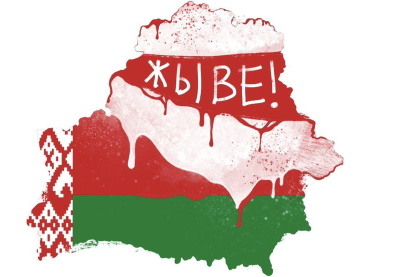Belarus: what's left of it?

Speakers
- Ronan HERVOUET, professor at Bordeaux University, specialist in authoritarian regimes (Centre Emile Durkheim)
- Dzianis KANDAKOU, researcher in comparative literature, lecturer at Sorbonne Nouvelle
- Tatyana SHUKAN, research associate at CEFRES working on the exile of Belarusians (Centre Emile Durkheim)
- Alice SYRAKVAŠ, founder member of the Belarusian People's Embassy in France
- Źmićier ŁUKAŠUK, journalist (Euroradio) and essayist, author of " The Belarusian national idea" (Medysont, Minsk, 2020)
Moderation:
- Adrien NONJON, PhD student, specialist in post-Soviet space (CREE, Inalco)
Description of the scientific event
In the current context where Aliaksandr Loukachenka, in power for 30 yrs, gave himself a crushing "victory" with almost 87% of the vote in his 7th presidential elections, where Belarus has sunk into an atmosphere of total terror with thousands of political prisoners and where anyone can be arrested for a harmless like on the Internet, where Russification has reached new heights, where the country is experiencing unprecedented international isolation as Putin's staunchest ally, where the very existence of Belarus vassalized by Russia is being called into question by some, this round table will legitimately raise the question of what remains of Belarus, a sovereign state with its own identity, today. Where can we hope to find sources of hope for a future rebound?
Is it in the inexhaustible strength of the Belarusian people's resistance to the autocratic machine? In their capacity for resilience? Is it on the side of the Belarusian fighters engaged against the common enemy that is the "Russian world" on the Ukrainian front? Is it the Belarusian diaspora, made up mainly of political refugees and now numbering in the hundreds of thousands, that can preserve Belarus beyond its borders? Or are the driving forces of renewal to be drawn from the very depths of what constitutes the particular identity of the Belarusian people, the result of a complex but little-known history?
The guests, all eminent Belarus specialists, will attempt to provide some answers to these difficult but necessary questions. As the Belarusian issue sheds a different and valuable light on the geopolitical situation in this geographical area, this round table is intended to be a rare opportunity to reflect on the fate of Belarus, but also on the future of this part of Europe.
Organization
- Olena SAINT-JOANIS (CREE, Inalco)
- Adrien NONJON (CREE, Inalco)